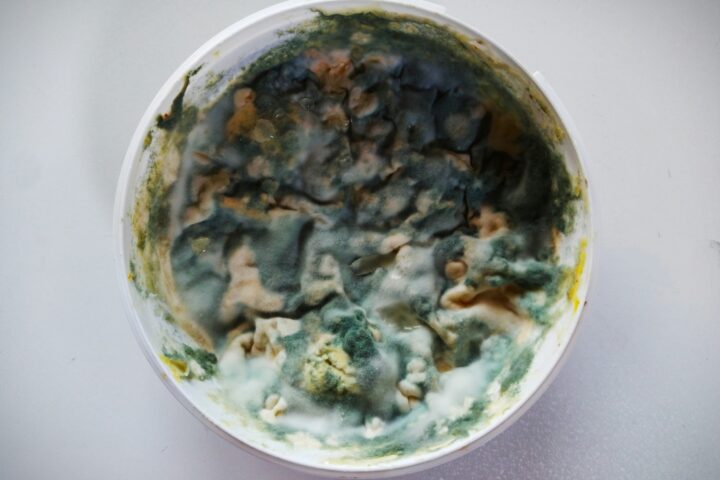
Ten myths about food production
Having the “right” diet is playing an increasingly more important role in the lives of a great many people. A healthy lifestyle has become a status symbol. Healthy foods and sustainable production methods have been the subject of many extremely emotional debates. A wide range of outdated ideas and myths have taken root in the minds of a large number of consumers. Below, we will take a look at ten myths and their deconstruction.
Friday, November 19, 2021
“Pesticides are becoming increasingly poisonous”
New active substances have to go through a stringent approval process. The overriding principle is that these substances must not endanger people and the environment when used properly. The available data proves that pesticides have not only become safer in the last twenty years, but also more environmentally friendly. Fewer and fewer pesticides that pose a particular risk are being approved and sold. The acute toxicity of pesticides has decreased. In addition, an increasingly lower amount of active substance is now required to ensure the same protective effect. The myth that pesticides are becoming increasingly poisonous is debunked by actual facts. Read more (in German)
“Genetic engineering puts our health at risk”
You frequently hear people saying that genetically modified food is not safe and could have a negative impact on the health of humans and animals. These claims cannot be backed up with facts. According to the latest research, the cultivation of plants using genetic engineering is just as safe as conventional cultivation methods. In the United States, 95 percent of the more than 9 billion cattle, pigs and poultry bred each year consume feed produced from genetically modified plants. Using new genetic engineering methods, researchers can make plants more resistant to diseases and pests, as well as to heat, wet conditions and saline soils. Read more (in German)
“Organic farming can feed the world”
To produce the same amount of food as conventional farming methods, organic farming would require approximately 40 percent more land area. In the future, up to 80 percent more land area would be required to be able to feed the growing world population using entirely organic farming methods. Huge woodland areas would also have to be cleared to ensure that there would be enough arable farm land. Moors, forests and conservation areas would have to make way to provide the rest of the land area required. This would place a large amount of pressure on biodiversity. A larger amount of arable land is also not a viable option in view of climate change. In addition, increasing the amounts of energy, labor and raw materials used in growing crops without the yield also increasing is not resource-efficient. Crop losses are resulting in lower incomes for farmers and higher prices for consumers. They are also not environmentally friendly and place a strain on the climate. In order to supply the growing world population with healthy food, productive and resource-efficient farming methods are indispensable. Read more (in German)
“Pesticides are poisoning our food”
The media like to scandalize the levels of pesticide residues that are found in food. The fact these residues are of a lower value than those that could affect our health is not usually mentioned in these reports. Neither is the fact that pesticides allow for healthy food to be produced for large swathes of the population in the first place and thus make a large contribution to public health. Strict safety margins guarantee that we can enjoy our food. Many poisonous fungi, pathogens and dangerous weeds cannot be dealt with without using pesticides. Consumers can consume Swiss foods from conventional farming operations at any time without hesitation. In fact, Swiss food has never been safer than it is today. Read more (in German)
“Over 200,000 people die every year due to pesticide poisoning”
At demonstrations and in publications against agricultural research companies, people persistently claim that over 200,000 people die every year due to pesticide poisoning. A closer look at the data shows that this figure is from a study carried out 35 years ago. In a thought experiment, the number of suicides caused by pesticides in Sri Lanka at the time were extrapolated on a global basis. This figure does not in any way substantiate the claim that the agricultural use of pesticides is responsible for so many deaths. Read more (in German)
“Natural is healthy, chemicals are poison.”
It is totally wrong to assume that natural foods are synonymous with good health and to denounce synthetically manufactured substances as “poisonous”. There are many natural substances that are extremely poisonous and at the same time there is a large number of synthetically manufactured substances that are totally safe. The mycotoxin aflatoxin is extremely carcinogenic. However, the danger caused by this mycotoxin can be mitigated by using specific fungicides. The heavy metal copper is used in organic farming operations as a “natural” fungicide. However, the copper accumulates in the soil and has a toxic effect on soil organisms such as earthworms. The ability to manufacture substances synthetically also has a positive impact on animals and biodiversity. “Natural” heavy metals can be very harmful when used incorrectly. Read more (in German)
“The Swiss water is in bad shape.”
Our surface waters, the ground water and the drinking water are all in very good condition. The Swiss water quality stands at the top of the table in comparison to other countries. The quality of the drinking water in Switzerland has been proven to be good. The protection of surface waters is a key and high-priority topic in the Swiss Federal Council’s action plan for risk reduction and the sustainable use of pesticides. The agricultural sector, authorities and industry are currently working on continuously reducing the number and volume of undesired substances that are making their way into our water. Research institutions are also making an important contribution to making plant protection as targeted and sustainable as possible. Read more (in German)
“Pesticides are to blame for insect deaths.”
The decline in the number of insects has to be viewed from different perspectives and can be attributed to a large number of causes. Although there has been a 9 percent decline in land insects every ten years, water insect numbers have increased on average by 11 percent in the same period of time. It is clear, however, that there are various causes responsible for the decline in the land insect population. These include: A lack of living space (e.g. due to a lack of open landscape and/or hedges); all kinds of soil sealing (e.g. caused by building projects and roads); the introduction of substances into the environment (for cleaning and plant protection); an increase in light sources (e.g. due to the constant illumination of roads); an increase in traffic (collisions with insects); a lack of protection of biotopes (fewer wetlands). Read more (in German)
“Pesticides damage the climate.”
Pesticides help to produce more food in a smaller area of land. Higher yields by acre protect the soil and its resources from being used more intensively – and this does not just apply to specific regions only, but rather throughout the world. Forests, marshes and swamps are prevented from being used for agricultural purposes. Also, not having to use a plough reduces CO2 emissions. Modern direct sowing techniques – in which the field is not ploughed up before being sowed and the natural soil fabric is preserved as a result – would not work without using herbicides. If the soil is not cultivated, erosion declines, there is greater diversity in earthworms and other soil life, and humus forms quicker. Read more (in German)
“Organic farmers don’t need pesticides.”
The claim that organic farmers work without using pesticides is a view that has been spread widely, but is clearly false. Pesticides can be sprayed on fields as plant protection products or used in warehousing as biocides. Some 60 percent of the most popular pesticides sold in Switzerland are also approved for organic farming. An organic farm, as is operated today in Switzerland, cannot exist without using pesticides. Read more (in German)
Related articles

Global facts on world food and agriculture
Only thanks to technological progress and modern crop protection will we be able in the future to conserve our resources while feeding a growing population in a healthy and affordable way.

Pesticides in Green Smoothies
After countless recipes for Christmas cookies, festive roasts and cocktails, the advice on losing weight, detoxing and beautifying oneself now takes centre stage. Most of it is sheer nonsense.

Natural Toxins: An Underestimated Risk in Our Food
Safe food cannot be taken for granted. While chemical substances are often the focus of public criticism, reality shows that the greatest risks to food safety are of natural origin. Recent recalls of infant food products illustrate how insidious bacterial toxins or moulds can be.

Herbal Teas: Making You Sick Instead of Slim
Plant protection products are frequently the focus of public criticism. Far less attention is paid to the fact that natural ingredients in teas and dietary supplements are also biologically active and can pose health risks.

